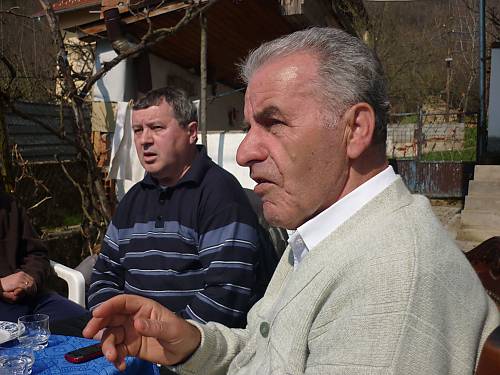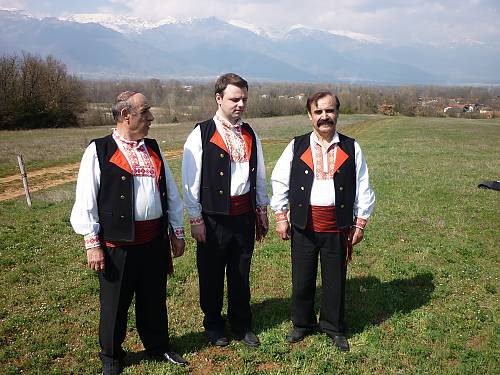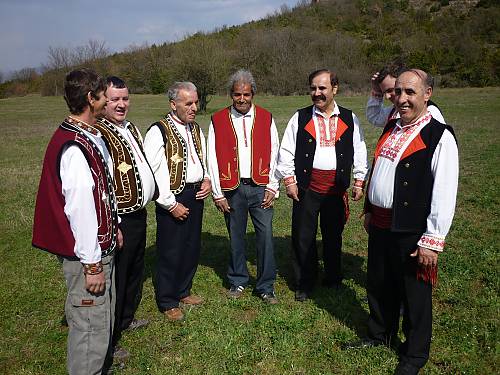Glasoechko, male two-part singing in Dolni Polog
Inscribed in 2015 (10.COM) on the List of Intangible Cultural Heritage in Need of Urgent Safeguarding
Male two-part singing in Dolni Polog is a traditional form of vocal music, known locally as Glasoechko, which is characteristic to the region. Songs are sung in a polyphonic manner with the drone voice moving contrapuntally in relation to the melodic leading voice, often accompanied by a shepherd’s flute and a bagpipe. Glasoechko is performed spontaneously in groups of two or three, at celebrations, assemblies, weddings, dinner parties and other social gatherings. Performance of this musical heritage constitutes a symbol of cultural identity for the bearers, integrated within a multi-ethnic society. Practitioners of this tradition are prominent and talented individual singers who have acquired their knowledge by imitating the techniques and skills of their predecessors. Male two-part singing in Dolni Polog faces a number of very serious threats to its viability, however. The number of individuals and groups practising and transmitting it is diminishing rapidly due in part to persistent outward migration of its bearers following the civil war conflict in 2001. Younger generations have extremely limited exposure to Glasoechko performances and older generations consider there is insufficient interest to warrant continued transmission. There are no recordings of Glasoechko songs and in its present state the tradition seems to verge on extinction.










